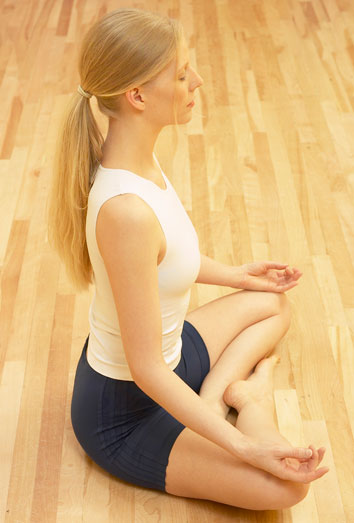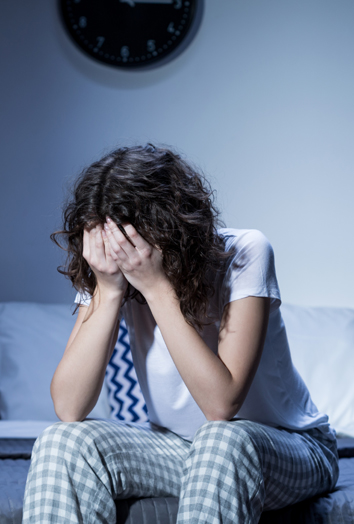Are you tired of struggling to fall asleep or waking up frequently during the night? Look no further! In this ultimate guide, we will provide you with valuable insights and effective tips to help you overcome insomnia and achieve a restful night’s sleep. We understand the importance of a good night’s sleep, and that’s why we have gathered advice from Wyoming King Bed owners who have experienced firsthand the benefits of this spacious and comfortable bed. Whether you are dealing with occasional sleeplessness or chronic insomnia, this guide is packed with practical tips and tricks that will aid you in improving your sleep quality and overall well-being.
Table of Contents
Understanding Insomnia
What is insomnia?
Insomnia is a common sleep disorder characterized by difficulty falling asleep, staying asleep, or experiencing poor quality sleep. People with insomnia often feel unsatisfied with their sleep and wake up feeling tired and groggy. It can be a short-term issue or a chronic condition that lasts for months or even years.
Causes of insomnia
Insomnia can be caused by various factors, including:
Stress and Anxiety: High levels of stress or anxiety can make it difficult to relax and fall asleep. Racing thoughts and worries can keep the mind active, preventing sleep.
Poor Sleep Habits: Irregular sleep schedules, inconsistent bedtime routines, excessive daytime napping, or engaging in stimulating activities before bed can disrupt the body’s natural sleep-wake cycle.
Medical Conditions: Certain medical conditions such as chronic pain, respiratory problems, heartburn, hormonal imbalances, and psychiatric disorders like depression or bipolar disorder can contribute to insomnia.
Medications and Substances: Certain medications, caffeine, nicotine, and alcohol can interfere with sleep quality and make it harder to fall asleep or stay asleep.
- Environmental Factors: Uncomfortable sleeping environments, excessive noise, bright lights, extreme temperatures, or an uncomfortable mattress can all contribute to difficulty sleeping.
Effects of insomnia
The effects of insomnia can extend beyond feeling tired during the day. Chronic insomnia can have a significant impact on a person’s overall well-being and quality of life. Some common effects of insomnia include:
Daytime Fatigue: Insomnia can lead to excessive daytime sleepiness, which can affect concentration, productivity, and overall energy levels.
Mood Disturbances: Insufficient sleep can contribute to irritability, mood swings, increased stress levels, and a higher likelihood of developing mental health conditions like anxiety and depression.
Impaired Cognitive Functioning: Lack of sleep can impair memory, attention span, problem-solving abilities, and decision-making skills, making it harder to perform daily tasks efficiently.
Weakened Immune System: Chronic sleep deprivation weakens the immune system, making individuals more susceptible to illnesses and infections.
- Increased Risk of Accidents: Sleepiness and impaired cognitive function can increase the risk of accidents, both at home and in work settings.
Understanding the causes and effects of insomnia is essential for finding effective strategies to manage and treat this sleep disorder. By addressing the underlying causes and implementing healthy sleep habits, individuals can improve their sleep quality and overall well-being.
Creating a Sleep-Friendly Environment
Choosing the right mattress
A good mattress plays a crucial role in promoting quality sleep and managing insomnia. When selecting a mattress, consider factors such as comfort, support, and durability. Wyoming King beds are known for their spaciousness, making them an excellent option for individuals struggling with insomnia. The generous size allows for unrestricted movement during sleep and minimizes partner disturbances. Additionally, Wyoming King beds offer ample space for stretching and finding a comfortable sleeping position.
Optimizing bedroom lighting
The lighting in your bedroom can significantly impact your ability to fall asleep and stay asleep. To create a sleep-friendly environment, it’s essential to optimize the lighting conditions in your bedroom. Here are a few tips:
- Use warm and dim lighting: Replace bright, fluorescent bulbs with soft, warm-toned lights. These create a more calming atmosphere and signal your body that it’s time to wind down.
- Install blackout curtains or blinds: Block out any external light sources, such as streetlights or early morning sunlight, that may disrupt your sleep.
- Avoid blue light exposure: Blue light emitted by electronic devices like smartphones, tablets, and computers can interfere with your sleep. Minimize their use before bed or use blue light filters to reduce its impact.
Controlling ambient noise
Unwanted noise can significantly impact the quality of your sleep, especially if you suffer from insomnia. Here are some tips to control ambient noise in your bedroom:
- Use earplugs: If you live in a noisy environment or have a partner who snores, investing in a pair of comfortable earplugs can help block out disruptive sounds.
- White noise machines: These devices emit soothing sounds like ocean waves or rainfall, which can help mask external noises and create a more peaceful sleep environment.
- Soundproofing your room: Consider using soundproofing materials like heavy curtains, wall insulation, or acoustic panels to minimize noise transmission.
By creating a sleep-friendly environment, choosing the right mattress, optimizing bedroom lighting, and controlling ambient noise, you can greatly improve your chances of overcoming insomnia and achieving a restful night’s sleep.
Establishing a Bedtime Routine
To effectively deal with insomnia, one of the key strategies is to establish a bedtime routine. This routine helps signal to your body and mind that it’s time to relax and prepare for sleep. By following a consistent routine, you can improve your sleep quality and overcome insomnia. Here are some important aspects to consider when establishing your bedtime routine:
Setting a consistent sleep schedule
A crucial factor in combating insomnia is maintaining a consistent sleep schedule. Try to go to bed and wake up at the same time every day, even on weekends. This helps regulate your body’s internal clock, making it easier to fall asleep and wake up naturally. By training your body to follow a consistent sleep pattern, you can improve the quality and duration of your sleep.
Relaxation techniques before bed
Incorporating relaxation techniques into your bedtime routine can greatly aid in dealing with insomnia. Engaging in activities that promote relaxation helps calm your mind and prepare your body for sleep. Consider incorporating techniques such as deep breathing exercises, meditation, or gentle stretching. These practices can help reduce stress, anxiety, and racing thoughts that often contribute to insomnia.
Avoiding stimulating activities
Before bedtime, it is essential to avoid engaging in stimulating activities that can interfere with your sleep. This includes avoiding electronic devices such as smartphones, tablets, or laptops, as the blue light emitted from these devices can disrupt your body’s natural sleep-wake cycle. Instead, opt for activities that promote relaxation, such as reading a book, taking a warm bath, or listening to soothing music. Creating a peaceful and calm environment before bed can significantly enhance your ability to fall asleep and stay asleep.
By establishing a bedtime routine that includes setting a consistent sleep schedule, practicing relaxation techniques, and avoiding stimulating activities, you can effectively manage insomnia and improve the quality of your sleep. Remember that consistency is key when implementing these strategies, so be patient and give your body time to adjust to the new routine. Sweet dreams!
Managing Stress and Anxiety
Identifying and addressing sources of stress
Stress can be a significant contributing factor to insomnia. It is important to identify and address the sources of stress in your life to effectively manage insomnia. Here are some steps you can take:
Recognize stress triggers: Pay attention to situations or events that consistently cause stress in your life. It could be work-related pressure, relationship issues, financial concerns, or any other factors that contribute to your anxiety levels.
Make a stress inventory: Take some time to write down all the sources of stress in your life. This exercise will help you gain clarity and prioritize which areas need to be addressed first.
- Develop coping strategies: Once you have identified the sources of stress, work on developing healthy coping strategies. This could include setting boundaries, practicing time management, learning effective communication skills, or seeking support from friends and family.
Practicing mindfulness and meditation
Mindfulness and meditation are powerful techniques that can help reduce stress and promote better sleep. By focusing your attention on the present moment, you can calm your mind and alleviate anxiety. Here’s how you can incorporate mindfulness and meditation into your routine:
Start with deep breathing: Take a few minutes each day to practice deep breathing exercises. Inhale deeply through your nose, hold your breath for a few seconds, and then exhale slowly through your mouth. This simple technique can instantly relax your body and mind.
Try guided meditation: Use mindfulness apps or online resources to access guided meditation sessions. These sessions will walk you through various relaxation techniques, helping you let go of stress and improve your overall well-being.
- Practice mindfulness throughout the day: Incorporate mindfulness into your daily activities. Whether you’re eating, walking, or doing household chores, try to fully engage your senses and focus on the present moment. This can help reduce stress and create a sense of calmness.
Seeking professional help when needed
If stress and anxiety continue to disrupt your sleep despite your best efforts, it may be time to seek professional help. A healthcare professional can provide valuable guidance and support to help you manage stress and improve your sleep quality. Consider the following options:
Consult a therapist: A therapist or counselor can help you explore the root causes of your stress and anxiety. They can provide you with coping strategies and techniques tailored to your specific situation.
Consider cognitive-behavioral therapy (CBT): CBT is a highly effective form of therapy that focuses on changing negative thought patterns and behaviors. It can help you develop healthier ways of coping with stress and improve your sleep habits.
- Talk to a medical professional: If your insomnia persists or is accompanied by other health concerns, it’s important to consult a medical professional. They can evaluate your situation, rule out any underlying medical conditions, and provide appropriate treatment options.
Remember, managing stress and anxiety is crucial for overcoming insomnia. By addressing the sources of stress, practicing mindfulness and meditation, and seeking professional help when needed, you can take significant steps towards achieving restful and rejuvenating sleep.
Healthy Lifestyle Habits
Exercise and its impact on sleep
Regular exercise has been shown to have a positive impact on sleep quality and can help alleviate insomnia symptoms. Engaging in physical activity during the day can promote better sleep at night. Here are some ways exercise can improve your sleep:
- Promotes relaxation: Exercise helps reduce stress and anxiety, which are common causes of insomnia. It releases endorphins, which promote feelings of relaxation and well-being.
- Regulates sleep-wake cycle: Regular exercise helps regulate your body’s internal clock, also known as the circadian rhythm. This can lead to a more consistent sleep schedule and better quality sleep.
- Increases sleep duration: Studies have shown that individuals who engage in regular exercise tend to have longer and more restful sleep compared to those who lead sedentary lifestyles.
- Improves sleep efficiency: Exercise can enhance the efficiency of sleep by reducing the time it takes to fall asleep and decreasing the frequency of nighttime awakenings.
To incorporate exercise into your routine for better sleep, consider the following tips:
- Choose the right time: Avoid exercising too close to bedtime, as it can increase alertness and make it harder to fall asleep. Aim to finish your workout at least 2-3 hours before bedtime.
- Find activities you enjoy: Engaging in activities you enjoy increases the likelihood of sticking to an exercise routine. Whether it’s jogging, swimming, yoga, or dancing, find something that suits your interests and fitness level.
- Be consistent: Make exercise a regular part of your routine. Aim for at least 150 minutes of moderate-intensity aerobic activity or 75 minutes of vigorous-intensity activity per week, as recommended by the American Heart Association.
- Start slowly: If you’re new to exercise or have any health concerns, consult with your healthcare provider before starting an exercise program. Begin with low-impact activities and gradually increase intensity and duration.
Dietary considerations for better sleep
What you eat and drink can significantly impact your sleep quality. Incorporating certain foods and avoiding others can help promote better sleep. Consider the following dietary considerations for better sleep:
- Balanced meals: Aim for balanced meals that include a combination of complex carbohydrates, lean proteins, and healthy fats. This can help regulate blood sugar levels and promote stable energy throughout the day, leading to better sleep at night.
- Sleep-friendly foods: Some foods contain nutrients that can promote sleep. Examples include foods rich in tryptophan, such as turkey, chicken, bananas, and nuts. Tryptophan is an amino acid that helps produce serotonin, a neurotransmitter that regulates sleep.
- Avoid heavy meals before bed: Eating large, heavy meals close to bedtime can disrupt sleep. It’s best to finish your dinner at least 2-3 hours before going to bed to allow for proper digestion.
- Limit fluid intake before bed: Drinking too many fluids before bed can result in frequent trips to the bathroom during the night. To minimize disruptions, avoid consuming excessive fluids, especially those containing caffeine or alcohol, in the hours leading up to bedtime.
Limiting caffeine and alcohol intake
Caffeine and alcohol can have significant effects on sleep quality and should be consumed in moderation, especially if you struggle with insomnia. Consider the following guidelines for limiting caffeine and alcohol intake:
- Caffeine: Caffeine is a stimulant that can interfere with sleep. It’s advisable to limit or avoid caffeine intake, especially in the afternoon and evening. Sources of caffeine include coffee, tea, soda, energy drinks, and chocolate. Opt for decaffeinated alternatives or herbal teas if you crave a warm beverage before bed.
- Alcohol: While alcohol may initially make you feel drowsy, it can disrupt sleep patterns and lead to poor quality sleep. Avoid consuming alcohol close to bedtime, as it can cause frequent awakenings and disturbances throughout the night. It’s best to limit alcohol intake and allow sufficient time for your body to metabolize it before going to bed.
By incorporating healthy lifestyle habits, such as regular exercise, mindful dietary choices, and limiting caffeine and alcohol intake, you can improve your sleep quality and effectively manage insomnia. Remember, consistency and balance are key when it comes to maintaining healthy habits that support a good night’s sleep.
Alternative Remedies and Therapies
Herbal supplements for insomnia
In addition to traditional medication, many individuals suffering from insomnia have found relief through the use of herbal supplements. These natural remedies can help promote restful sleep without the harsh side effects often associated with prescription drugs.
Valerian Root: Valerian root is a popular herbal supplement known for its calming properties. It has been used for centuries to treat insomnia and other sleep disorders. Research suggests that valerian root may help improve sleep quality and reduce the amount of time it takes to fall asleep.
Chamomile: Chamomile is a well-known herb that is often used as a tea to promote relaxation and sleep. It contains compounds that have a calming effect on the body and may help reduce anxiety and insomnia. Drinking chamomile tea before bed can be a soothing ritual that signals to the body that it’s time to unwind and prepare for sleep.
- Passionflower: Passionflower is a flowering plant that has been used as a natural remedy for insomnia and anxiety. It is believed to increase levels of a chemical called gamma-aminobutyric acid (GABA) in the brain, which helps to calm the nervous system and promote relaxation. Passionflower can be taken as a supplement or consumed as a tea.
Acupuncture and acupressure
Acupuncture and acupressure are alternative therapies that have been used for centuries to treat a variety of health conditions, including insomnia. These practices are based on the concept of qi (pronounced “chee”), which is believed to be the life force that flows through the body. When qi becomes blocked or imbalanced, it can lead to various health issues, including sleep disturbances.
Acupuncture: Acupuncture involves the insertion of thin needles into specific points on the body. By stimulating these points, acupuncture aims to restore the flow of qi and promote overall well-being. Research suggests that acupuncture may help improve sleep quality and reduce the severity of insomnia symptoms.
- Acupressure: Acupressure is similar to acupuncture but does not involve needles. Instead, pressure is applied to specific points on the body using the hands, fingers, or special tools. This gentle pressure can help release tension and promote relaxation, making it beneficial for individuals struggling with insomnia.
Cognitive Behavioral Therapy for Insomnia (CBT-I)
Cognitive Behavioral Therapy for Insomnia (CBT-I) is a type of therapy that focuses on changing patterns of thinking and behavior that contribute to sleep problems. It is considered one of the most effective non-drug treatments for insomnia and is often recommended as a first-line treatment.
Sleep hygiene education: CBT-I involves educating individuals about healthy sleep habits and behaviors, also known as sleep hygiene. This may include recommendations such as keeping a consistent sleep schedule, creating a relaxing bedtime routine, and avoiding stimulating activities or substances close to bedtime.
Cognitive restructuring: CBT-I also addresses negative thoughts and beliefs about sleep that can contribute to insomnia. Through cognitive restructuring techniques, individuals learn to identify and challenge unhelpful thoughts and replace them with more positive and realistic ones.
- Stimulus control therapy: Stimulus control therapy helps individuals associate the bed and bedroom with sleep rather than wakefulness. This may involve techniques such as only using the bed for sleep and sex, and getting out of bed if unable to fall asleep within a certain amount of time.
Final Thoughts:
The Ultimate Guide to Dealing with Insomnia: Tips and Tricks from Wyoming King Bed Owners offers a comprehensive and insightful resource for those struggling with sleepless nights. From the various tips and tricks shared by Wyoming King Bed owners, it is evident that the choice of a comfortable and supportive bed plays a crucial role in combating insomnia. By following the advice provided in this guide, individuals can make informed decisions when it comes to selecting the right bed and implementing effective sleep strategies. With the ultimate goal of achieving restful nights and improved overall well-being, this article serves as a valuable tool for anyone seeking relief from insomnia.
FAQs:
What is a Wyoming King Bed, and how does it contribute to better sleep?
A Wyoming King Bed is a spacious mattress, measuring 7 feet by 7 feet, providing ample room for individuals or couples. The extra space allows for more comfortable sleep, reducing disturbances and promoting a better night’s rest.
Can a Wyoming King Bed really help with insomnia?
Yes, many Wyoming King Bed owners have reported improvements in their sleep quality. The larger surface area minimizes disruptions from movement, and the luxurious comfort of the bed can contribute to a more relaxed and restful sleep environment.
Are there specific tips from Wyoming King Bed owners to combat insomnia?
Absolutely. Our community of Wyoming King Bed owners suggests adopting a consistent bedtime routine, investing in quality bedding, and creating a serene sleep environment. These practices, combined with the spacious comfort of the bed, can significantly alleviate insomnia.
How does mattress size impact sleep quality?
The size of your mattress can influence sleep quality by reducing disturbances caused by movement. Wyoming King Beds, being exceptionally spacious, offer an optimal sleep surface, allowing individuals to stretch out comfortably and enjoy a more peaceful night’s sleep.
Can couples benefit from a Wyoming King Bed if one partner suffers from insomnia?
Yes, the generous dimensions of a Wyoming King Bed can be particularly beneficial for couples. The extra space minimizes disturbances, providing each partner with the room they need to sleep undisturbed, even if one struggles with insomnia.
Are there recommended accessories or sleep aids for Wyoming King Bed owners dealing with insomnia?
Wyoming King Bed owners find that investing in high-quality pillows, breathable bedding, and creating a calming sleep environment enhances their overall sleep experience. Additionally, some individuals have reported success with relaxation techniques or sleep-inducing scents.
Where can I find Wyoming King Beds and related sleep products?
Wyoming King Beds and sleep accessories can be found at reputable mattress retailers, furniture stores, and online marketplaces. Ensure to choose a trusted provider that offers high-quality products to maximize your sleep improvement journey.






